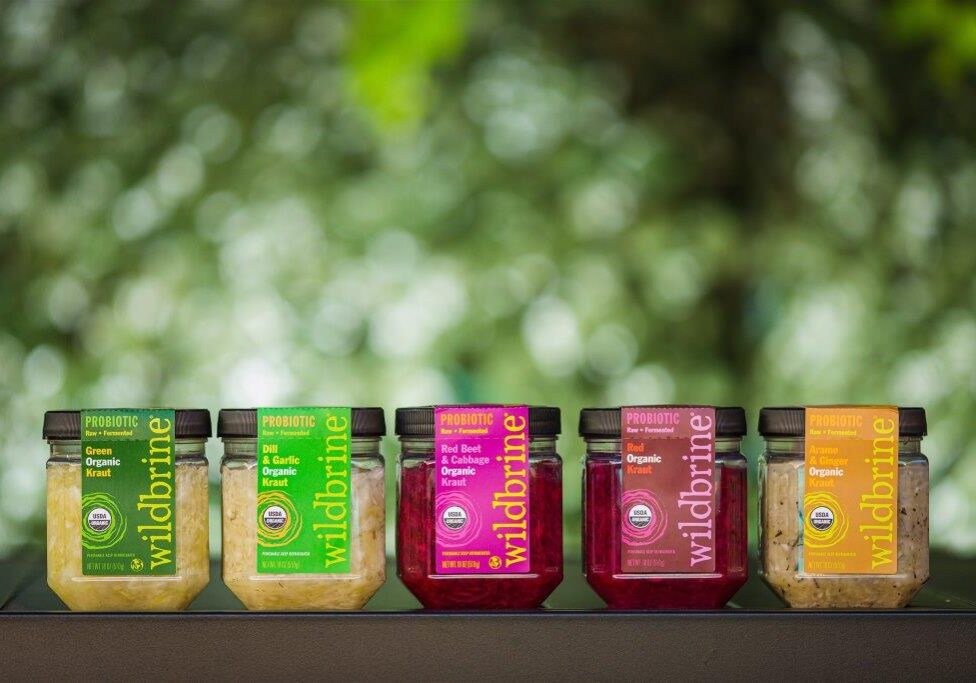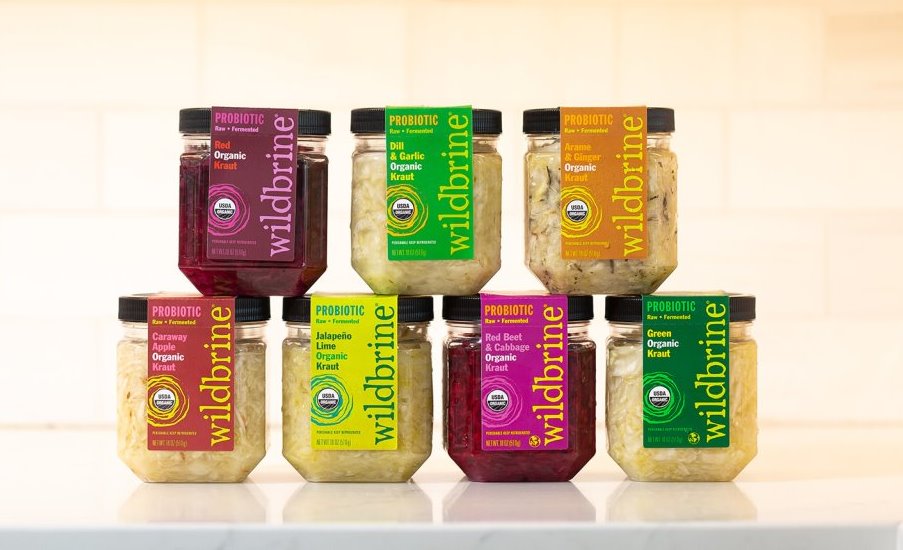What does sauerkraut mean? Sauerkraut is the German language equivalent of “sour cabbage.” In reality though, it can mean different things to different people. To busy home chefs, sauerkraut, or fermented cabbage, is a fast, easy way to liven up their families’ favorite meals. To health-conscious eaters, it’s a probiotic superfood guaranteed to keep their bodies firing on all cylinders. And to anyone watching his or her weight, sauerkraut is a low-cal option that’s both satisfying and delicious. Considering the wide appeal of this ancient miracle food, perhaps the question we really should be asking is “What does sauerkraut mean to you?”
History of Sauerkraut
Sauerkraut has long been a staple of the German diet, but it’s a popular ingredient in many other traditional cuisines as well. Ever tried French “dressed” sauerkraut, better known as Choucroute Garnie? Or Dutch Stamppot? Or Polish Pierogi? Besides meat and potatoes, what do all of these quintessentially European dishes have in common? If you guessed kraut, you guessed right. However, you might be surprised to learn that despite it’s deep European roots, this jarred veggie with its distinctive vinegary flavor, actually originated in China.
The Chinese began preserving shredded cabbage in rice wine more than 2,000 years ago as a means of feeding the vast number of laborers needed to build the Great Wall. Centuries later, Mongol marauders led by Genghis Khan invaded China and co-opted the process for their own use, carrying the knowledge with them as they continued to push westward into Europe.
Hearty and wholesome, sauerkraut eventually became a mainstay of Central and Eastern European cuisine. Suited to cold-weather climates, cabbage could be harvested, salted, and fermented in the fall and then stored for months without spoilage, making it a nutritious source of sustenance when other foods were scarce. The preserved vegetable with its telltale briny flavor was so valued, it was often associated with happiness and wealth and included in New Year’s celebrations as a sign of good things to come.
Mixed with other fruits and vegetables (apples, berries, carrots, turnips, beets, peppers, and caraway seeds) sauerkraut was typically served with mashed potatoes, pork or sausage, in soups and stews, or as a hearty filling for dumplings. Today, if you want to try an iconic American version of this dish (brought here by German and Dutch immigrants in the 18th century), a trip to NYC is in order. In fact, no visit to the Big Apple is complete without lining up at a corner pushcart to enjoy a steaming frankfurter smothered in kraut and spicy brown mustard.
What Does Sauerkraut Mean When It Comes to Your Health?
The health benefits of sauerkraut have been heralded for centuries by the world’s earliest scientists, philosophers, mariners, soldiers, and healers. These medieval dieticians might not have understood why, but they recognized that this fermented magic was an affordable and readily accessible cure-all for a variety of ills. It was known to ward off scurvy, keeping men fit for months at sea or during long military campaigns. Easily stored and transported in airtight casks, sauerkraut was also a sought-after treatment for inflammation, headaches, poor eyesight, canker sores, gum disease, and digestive issues. It was even believed to help new mothers produce nutrient-rich breast milk for nursing infants.
Today, modern science has unlocked many of the secrets behind sauerkraut’s health-inducing qualities. Cabbage is transformed into sauerkraut through fermentation, a process that preserves foods with naturally occurring lactic acid bacteria and infuses them with a pleasant bitterness and zest. However, fermented foods do more than simply complement and enhance the flavor of your meals. They also promote the growth of helpful bacteria, known as probiotics, which improve your body’s immune function and contribute to your digestive, heart, and mental health. Billions of these friendly microbes reside in your gut, helping your body absorb vitamins and minerals, while at the same time fighting off bad bacteria that can lead to disease.
Additionally, sauerkraut is loaded with essential minerals (potassium, calcium, phosphorus, and magnesium), vitamins (B, C, and K), and folate, key nutrients that keep your body and mind functioning properly day in and day out. Best of all, at only 30 calories per cup and chock full of fiber, a serving of sauerkraut can help keep hunger pains at bay, making it easier to maintain your ideal weight.
How to Incorporate Sauerkraut into Your Diet
Fermented foods (as with any new addition to your diet) should be introduced slowly, giving your digestive system time to adjust. Fair warning though, once you begin experimenting with this super-simple, super-tasty ingredient, going “slow” won’t be easy.
Sauerkraut or Liberty Cabbage as it was called during WWI (to avoid negative German connotations) has come a long way from its starring role in grandma’s Bratwurst and Sauerkraut Sunday night dinner. Not that this classic isn’t yummy – it absolutely is! It’s just that today’s nutrition-forward chefs are churning out new deliciously tangy recipes faster than we can try them. Just sneak a peek at our fermented foods recipe blog. Adventuresome cooks are folding sauerkraut into savory pancake and bread batters for a moist, dense chew. They’re using sauerkraut as a hearty filling for dumplings, wontons, and wraps. And they’re relying on sauerkraut’s salty profile to bump up the rich chocolate flavor of their most decadent fudgy desserts. One contributor even shared a recipe for a killer Sauerkraut Martini.
In our humble opinion though, the best way to enjoy sauerkraut is to spoon it right out of the jar onto your favorite soups, salads, and sandwiches. Cool, refreshing, tart, and crunchy – this complex, versatile veggie is a sure-fire way to turn a casual meal into an eye-popping, tongue-tingling taste experience.
Search for the most nutritious sauerkraut options (those with live cultures) in your market’s refrigerated section. Or, let us ship you a jar of our wildbrine gluten-free, vegan sauerkraut. Our krauts come in seven unique flavors because to us, sauerkraut is much more than just fermented cabbage. When paired with our favorite foods, sauerkraut is the secret to “a perfect bite.” Do you agree? Disagree? We’d love to know. What does sauerkraut mean to you?

